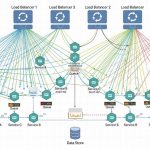After obtaining your insurance license, setting up your website, and being ready to attract clients, you suddenly realize that your website isn’t ranking on Google and no one can find you. What could be wrong? This is where on-page SEO for insurance agents comes in. On-page SEO is all about optimizing individual web pages to rank higher and appear more relevant in search engines like Google. As an insurance agent, strong on-page SEO is crucial for getting your website in front of people searching for insurance-related terms.
I know SEO can feel overwhelming at first. I certainly felt that way when I first started out! However, implementing basic on-page best practices doesn’t have to be complicated. We’ll cover exactly what you need to know to optimize your insurance agency website.
Let’s get started!

Choose a Focus Keyword for Each Page
The cornerstone of on-page SEO for insurance agents is choosing strong primary keywords (also called focus keywords) that you want each page to rank for. These should be keywords that prospects would type into Google to find services you offer.
For example, as an insurance agent some good insurance-related keywords could be:
- Home Insurance
- Auto insurance
- Life insurance
- Business Insurance
- Insurance near me
You’ll optimize the content on each page around the chosen main keyword. Help Google understand the topic by using it in key places like headlines, subheadings, opening paragraphs, etc. But be careful not to over-optimize or “keyword stuff” as that can get your site penalized.
Here’s a quick and easy keyword research method:
- Make a list of your top services and the areas you serve. For example “Austin small business insurance”.
- Plug these terms into Google and see what related long tail variations come up in the People Also Ask section.
- Choose 1-2 potential keywords per page, considering search volume and competition.
Optimizing Page Titles
Your page title is the main text that shows up in blue on search engine results pages under the URL. It’s one of the most important on-page elements for SEO.
Page titles should:
- Contain your focus keyword for the page near the beginning if possible
- Accurately describe the page’s topic
- Entice searchers to click
Ideally, keep titles under 60 characters so they don’t get cut off in search results.
Here’s a good template: Focus Keyword – Description of What Page Offers | Site Name
Example home page title: Austin Small Business Insurance Agency | Schwartz Insurance
And an inner services page: Small Business Liability Insurance | Schwartz Insurance
Meta Descriptions
The meta description is the preview text under the title in search results. Accurate, compelling descriptions can improve click-through rates.
Meta description best practices:
- Incorporate focus keywords naturally
- Write an interesting description of the page’s content
- Address the reader and highlight your value proposition
- 160-180 characters maximum
For example: We specialize in affordable liability, property, and workers comp policies to protect Austin small businesses. Contact our agency today for a custom quote.
Headlines and Subheadings
Break up page text with descriptive headlines and subheadings relevant to the focus keyword. This improves readability and reinforces page topics to search engines.
For example on a Business Insurance page:
H2: We Get Austin Small Businesses The Coverage They Need
H3: Flexible Liability Limits H3: Protect Your Physical & Digital Assets
H3: Workers Comp Made Simple
Image File Names and Alt Text
Images can also be optimized with relevant keywords. First, give image files keyword-rich names like:
small-business-insurance-agents.jpg
Then in the image HTML, use the alt attribute to insert a description of the image contents:
<img src=”small-business-insurance-agents.jpg” alt=”Insurance agents discussing policy options with clients”>
URL Structure Google also considers page URLs as a relevance signal. If possible create URL slugs that contain your keywords:
www.schwartzinsurance.com/austin-small-business-insurance
This also has the benefit of being more readable!
Optimize Text Content
Once you’ve incorporated your main keyword in key metadata and structure elements, use it selectively 3-5 more times in the page’s text content. Focus on using the keyword in natural-sounding sentences in the opening and closing paragraphs.
Ideally write long-form, original content over 300 words. Answer searcher’s questions and supply value beyond what they could find on other sites. Support sections with related images and include geographical references like city names for local SEO.

Backlink Building
Backlinks from relevant external websites also play an important role in search rankings. Other sites linking back to your page signal trust and authority on the topics you’re optimizing for.
Here are a few easy link-building tactics:
- Update online directories like Yelp with your site URL
- Comment on local blogs and forums linking back to relevant insurance content
- Guest post on industry websites with a link back to bio
- Request partners like CPAs and payroll companies add your site to client resources pages
- Promote your content on social media so others will share
The more quality links you can get, the better, just make sure they come from trusted sources and vary the anchor text.
On-Page Techniques
Summary Those are the basics of optimizing locally targeted insurance website pages. To recap, on each page make sure you:
- Research and select a quality main keyword
- Use the keyword prominently in metadata (titles, descriptions)
- Include it in visible page elements like headlines
- Structure page URL around it
- Work it in naturally to text content
- Capture backlinks where possible
Meanwhile, provides an amazing user experience with simple site navigation to products and contact forms. Keep all pages mobile responsive so clients can find and request insurance quotes with ease.
By implementing these on-page optimization best practices, your insurance website will climb for valuable search terms over time.
Now let’s look at some common insurance SEO questions from beginners.
FAQs
What are the most important on-page SEO elements?
The most critical on-page factors are relevant title tags, strategic use of keywords, quality content, structuring pages around topics, optimizing images, modern website design, overall positive user experience, and fast mobile load speeds. Get these right before worrying about advanced tactics.
How many keywords should I target per page?
A good rule of thumb is 1-2 primary keywords per page. Any more than that and you risk diluting the relevance signals for search engines. Optimize thoroughly for just your few selected terms.
Are backlinks important for local SEO?
Backlinks remain very important in 2023. By getting reputable sites in your region to link back to your insurance content, search engines view you as more of a subject matter authority. This translates into higher local rankings.
Should I keyword stuff my insurance website?
Absolutely not! Keyword stuffing is overusing keywords to try to manipulate search engines. It violates Google’s quality guidelines and may get your site penalized or even removed from results entirely. Optimize pages naturally around chosen topics.
How can I track my local SEO progress?
Free tools like Google Search Console and Google Analytics provide data on queries your site ranks for, top pages, click-through rates, traffic sources and more. Use this intel to refine your targeting and content over time.
Conclusion
Improving on-page SEO for your insurance agency website is crucial to compete for local search visibility. But it doesn’t have to overwhelm you. Take it step-by-step optimizing page by page as you add new content.
Focus on providing genuine value for insurance shoppers in your region through helpful educational materials. Establish yourself as a thought leader that prospects can trust for coverage advice.
If at any point you need help auditing or optimizing your SEO for insurance agents, don’t hesitate to reach out to an experienced digital marketing agency. Their technical expertise can greatly accelerate your organic growth and revenues.
But for now, just remember the basics we covered above. With some patience and consistency with on-page best practices, you’ll start claiming those top search spots from competitors in no time! Best of luck out there, and feel free to reach out if you have any other insurance SEO questions.






